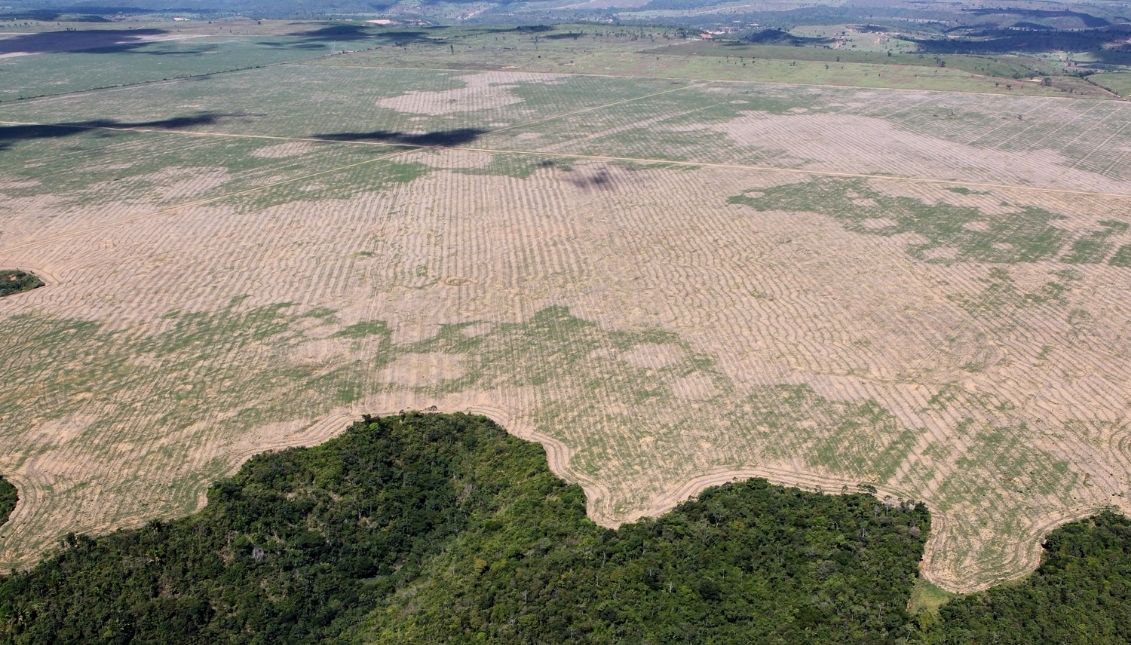
Acres of deforested land in Brazil. Photo: Wikicommons
The unfulfilled promises of climate change
At every environmental summit, governments meet to seek solutions, but few have ever been implemented.
Since the first edition of an international climate conference, held in Berlin in 1995, it has become a crucial turning point for initiating the socio-ecological transitions needed to avoid climate disaster.
However, no climate conference has fulfilled these climate change expectations or proposed solutions.
In the aftermath of the COVID-19 pandemic, environmental movements have been demonstrating that the climate crisis is not a temporary, partial or subjective problem. Instead, it is a structural, empirical and historical crisis.
These are some of the unfulfilled promises made by those in power at the summit:
Reduction in the carbon footprint
Twenty-four years have passed since the adoption of the Kyoto Protocol, the first major global agreement that promised to reduce carbon emissions. Since then, the world has hosted hundreds of climate summits and rich nations have reliably talked green, but emissions have continued to rise because no leader wants to saddle their citizens with the huge price tag.
At COP26 Joe Biden set a goal of creating "a carbon pollution-free energy sector by 2035 and a net-zero emissions economy by 2050 at the latest."
The future of green energy
During the 2015 Paris climate summit, most G20 countries pledged to double R&D spending on green energy innovations by 2020. Unfortunately, they have also reneged on this promise.
During the opening ceremony of COP26, UN Secretary General Antonio Guterres called on the international community to commit to cutting CO2 emissions by at least 45% by 2030 to avoid "digging our own grave."
The sirens are sounding.— António Guterres (@antonioguterres) November 1, 2021
Our planet is telling us something - and so are people everywhere.
We must listen — we must act — and we must choose wisely.
Choose ambition.
Choose solidarity.
Choose to safeguard our future and save humanity.#COP26 pic.twitter.com/XHXpTd1p3H
Guterres called for an end to "our addiction to fossil fuels, which is pushing humanity to the limit." The secretary general said that "the planet is heading for disaster" and failing to act on climate change is not an option but "a death sentence."
Illegal deforestation
At each summit, hundreds of governments commit, among many other things, to reduce deforestation rates in their countries, and Glasgow was no exception.
During the first week, the Mexican government stated that it had "formally joined the call for a declaration on forests and land use."
"The declaration is a commitment by world leaders to work collectively to halt and reverse forest loss and land degradation by 2030, while promoting sustainable development and fostering inclusive rural transformation," the Foreign Ministry said in a statement.
Among the signatories of the Glasgow Leaders' Declaration on Forests and Land Use are China and Brazil in addition to the United States and the countries of the European Union.
In this regard, on Wednesday, Nov.10, Brazil's Minister of Environment, Joaquim Leite, assured that his country will eliminate "illegal deforestation" by 2028. At the same time, it has committed to reduce greenhouse gas emissions by 50% until 2030.
"We recognize these challenges and have been working to address them, to curb illegal deforestation in the Amazon. The government has doubled the resources allocated to federal environmental agencies, and has authorized hiring for 739 new environmental agencies," the minister explained.











LEAVE A COMMENT: